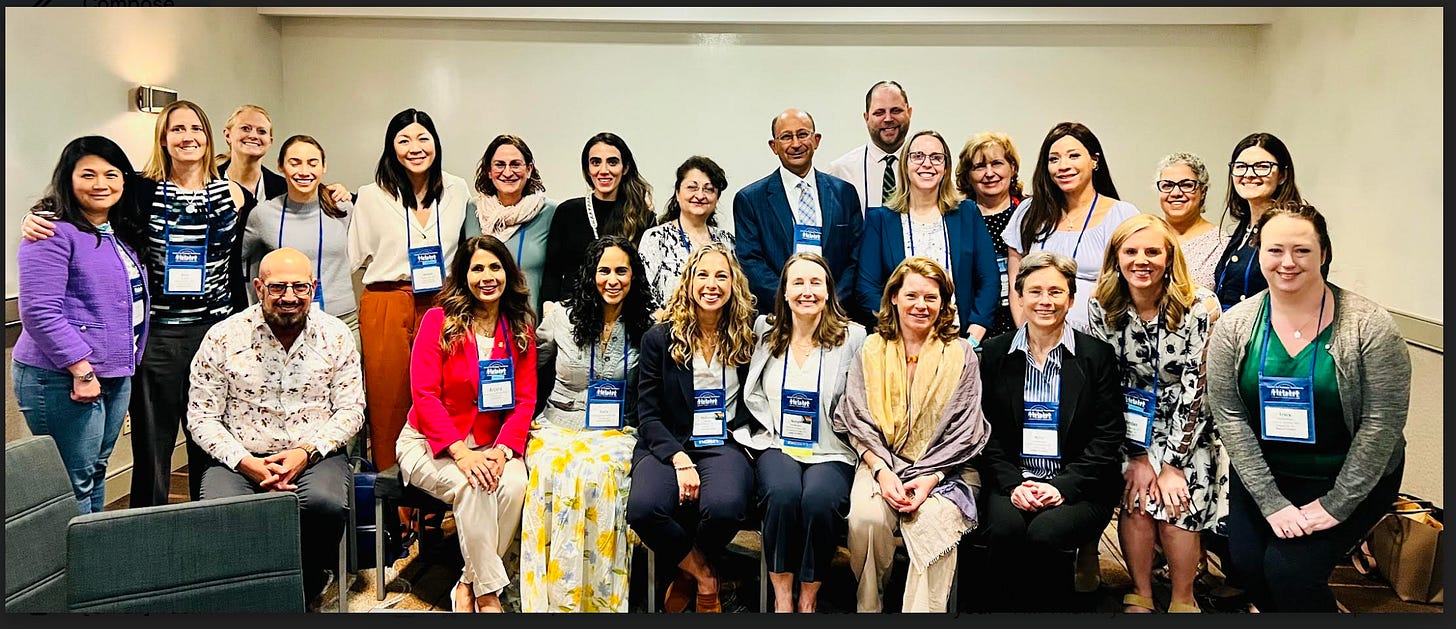Reader response
Myron Yaster MD
One more picture from SPA/SPMM/CCAS from Corrie Anderson and Rebecca Margolis
From Mgbechi Ugonna Erondu, MD MFA (she/her), Clinical Assistant Professor, Department of Anesthesiology, Pain and Perioperative Medicine, Clinical Assistant Professor, Division of Quality of Life and Pediatric Palliative Care, Stanford University Medical Center
How refreshing to see the review of recent Guidelines for Pediatric End-of-Life Care by Sanford et al. and, particularly, the focus on pediatric anesthesiologists as uniquely skilled, positioned, and privileged to accompany children and families as they navigate this transition. Similar observations as an anesthesiology resident led me to pursue pediatric palliative care fellowship immediately after pediatric anesthesiology fellowship and I was able to hone my communication skills, practice shared-decision making with teams of clinicians, child life specialists, social workers, chaplains and parents. I also learned to hold space and bear witness as families experienced serious illness under some of the most challenging circumstances imaginable and bring this empathic understanding to my practice as a pediatric anesthesiologist today. I am grateful that in my position at Lucile Packard Children's Hospital we are in discussions about incorporating palliative care principles into anesthesiology training. I am also grateful to the mentorship I received during my early palliative care experiences at Texas Children's Hospital including by Dr. Nancy Glass, which led me to write the following articles as encouragement and guidance to like-minded colleagues:
Mgbechi U. Erondu; Palliative Care Training in Residency. ASA Monitor 2020; 84:29 doi: https://doi.org/10.1097/01.ASM.0000722140.82851.5e
Mgbechi Erondu, Daniel Mahoney; Palliative care, resuscitation status, and end-of-life considerations in pediatric anesthesia. Curr Opin Anesthesiol 2020, 33:354 – 360 DOI:10.1097/ACO.0000000000000860
I cannot agree more with the authors' words: "Caring for children at the end-of-life and the families that grieve them is a privilege and an honor, adds meaning to our work, and makes us proud when done well."
From Deborah C Richman MBChB FFA(SA), Clinical Associate Professor, Department of Anesthesiology, Stony Brook University Medical Center
Does health insurance generally cover the newer cheaper versions of the genetic testing for MH? It did not previously so I never sent patients unless they were willing to support research and / or pay out of pocket.
From Henry Rosenberg MD in response
Very good question that we at MHAUS are looking into. There are about 15 genetic company testing companies such as Prevention Genetics, Gene Dx, Labcorp, as well as academic labs. The costs vary by type of test. The most expensive is whole genome screening, more common is whole exome and then panel testing . The charges range from $5,000 to $250. I am sure Oncology departments at your institution will have information.


